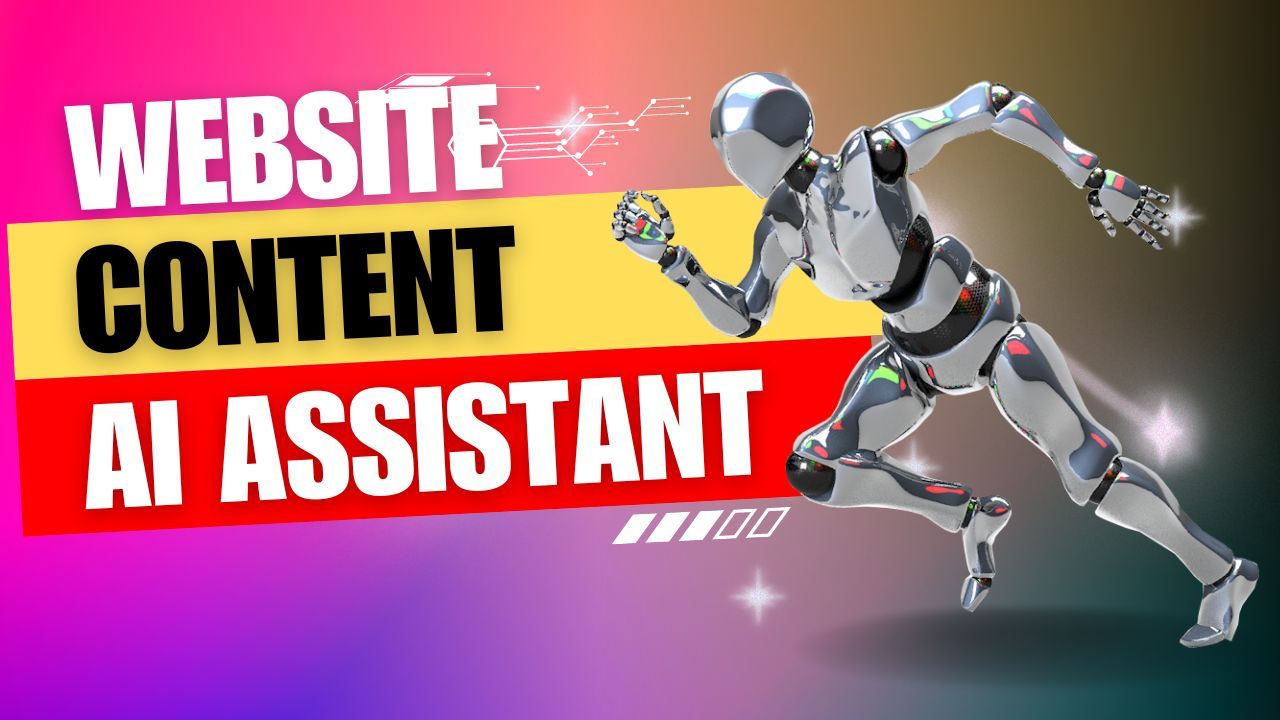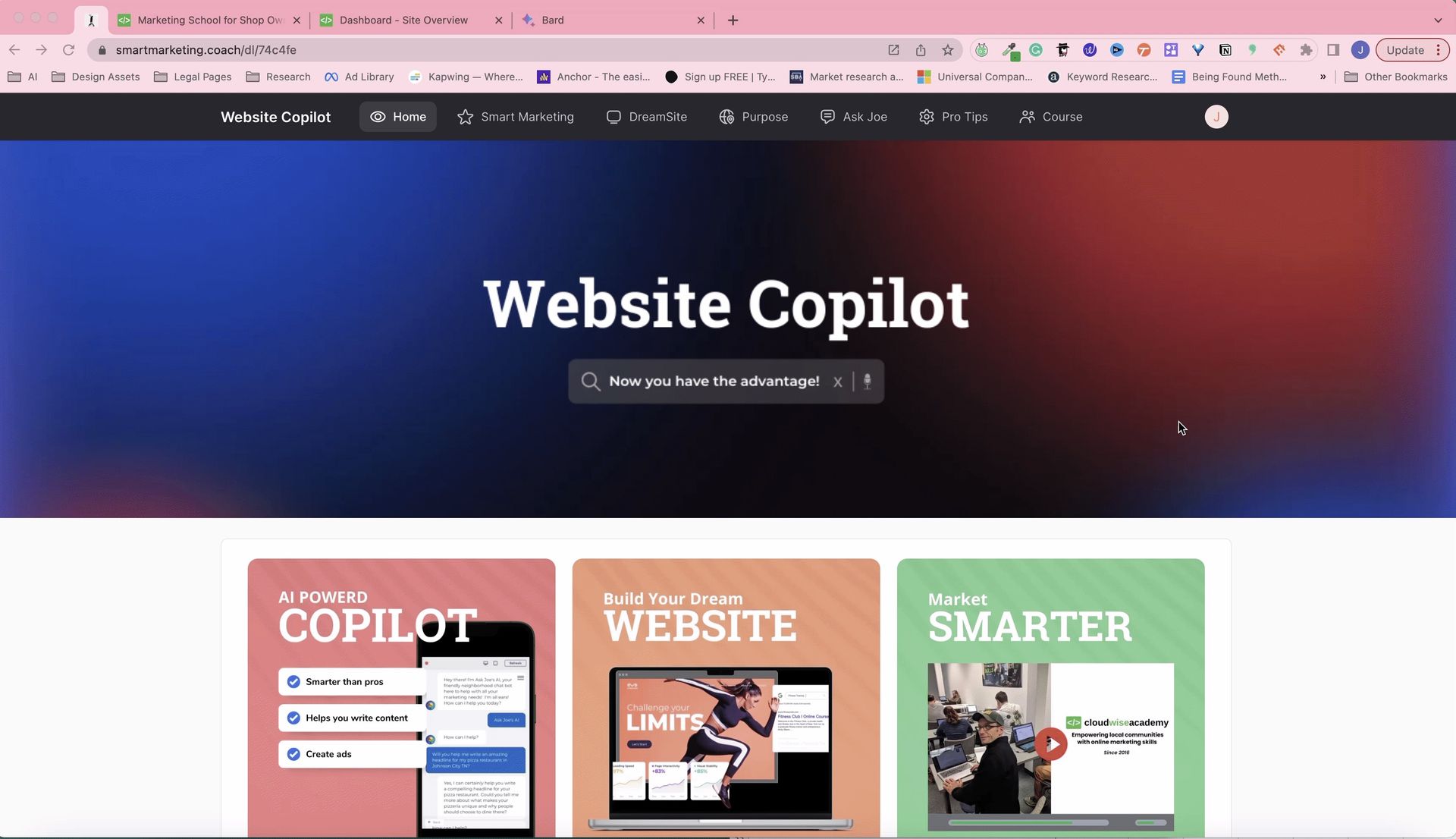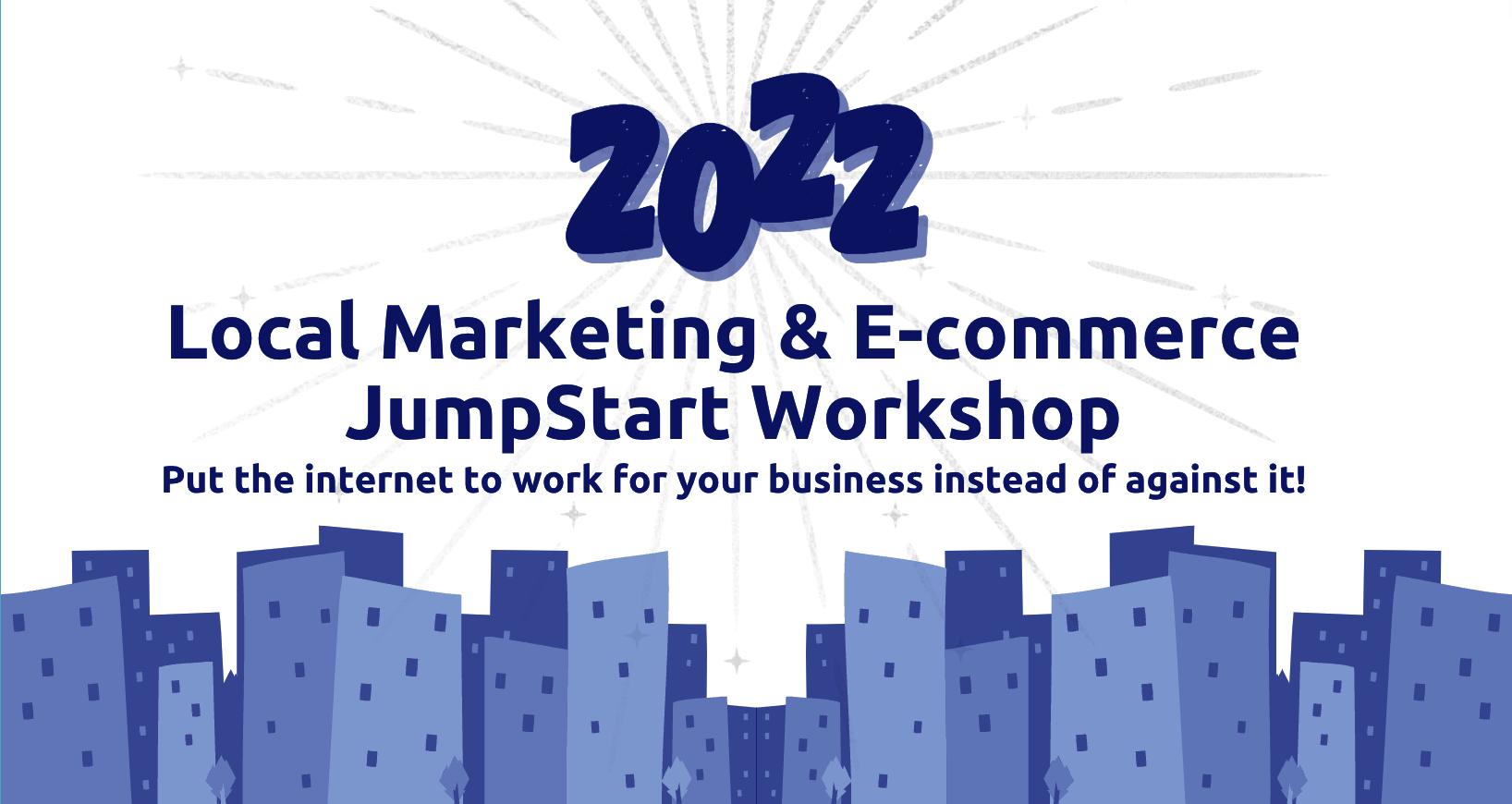(We give good do-it-yourself advice in the article. But if you’d rather we just do web marketing right for you so you don’t have to think about it, check out this page ).
“You need a website! You need a Twitter account! Why aren’t you socializing your articles? Do you even understand SEO at all ?”
If this is the type of thing you hear from SEO gurus all the time, and you’re frustrated, that’s exactly what this article was written to solve. You probably know of a thousand things you should do online. You probably don’t know what to do first.
Hopefully this article should give you a place to start, and an idea of where you’ll end up.
Website marketing tips for each stage of your digital journey
If you aren’t online at all:
- Start with a Google my Business page. Google My Business takes less than an hour to set up and it’s free. Enter your basic information, and if people are searching for you, at least they’ll be able to find you with a minimum of hassle even if you don’t have a website. Compared to not being online at all, this step alone will help you considerably.
- Set up a social media presence. Create a page for your business on Facebook or Linkedin or some other platform (depending on where your customers are. For B2C, try Facebook, Etsy, or Pinterest. For B2B, LinkedIn is the way to go). This will take about 10 minutes, and it’s also free.
- Post on social media. If you have a Facebook page but you never post anything, people will have doubts about whether you’re really in business. Having a relatively inactive page is still better than nothing at all, but it pays to occasionally post short videos, updates, sales promotions and so on. You don’t necessarily need to write regular full-fledged blog posts yet, though you can if you wish.
- Interact with leads on social media. Chances are people will comment on or “like” your posts. You should have someone weeding out the spam, responding to comments and questions, and tracking down people who have liked your posts to figure out if they could become potential customers.
At one point, someone commented “awesome!” on one of our Facebook posts. We thanked them for the comment and asked what they thought was awesome. It lead to a very interesting conversation that eventually resulted in business.
If you have a presence online, but not a good website:
- Then you should build a good website. Don’t overcomplicate it. A website is only five things:
- A home page
- An about page
- A service or products page
- A blog
- A contact page
Of course, your business may have some other requirements, but that in itself is perfectly sufficient to start. Your website doesn’t have to be beautiful. In fact, if you’re spending time creating really elaborate animations and over-designed features you’re probably hurting yourself.
Here’s something that many entrepreneurs, in their zeal for quality, don’t understand: No one is going to be blown away by your website. People might be blown away by your blog posts, if they happen to be especially useful and insightful, but the main pages that comprise the meat and potatoes of your website aren’t going to create awe.
In fact, if your website elicits a strong emotion, it will probably be frustration. Your job is only to make sure that you don’t do that. You don’t need to make a perfect website, and you shouldn’t try. All you need is a website that doesn’t suck.

- Make sure your website converts people. A website is an extension of your brand. A measure of a good website is how well you can convert views to sales. Do folks feel the need to call when they explore your website? If so, you’re doing a good job. If not, then you’re not.
Of course, knowing how to do that is the trick, but this is something that’s different for every industry. The only sure-fire method for conversion is to find a website that is like yours, but is very good at conversion. Do exactly what they do, but slightly better.
I don’t know what your website should look like. I don’t know your industry. But Google does. You just have to look.
- Lastly, make sure your website is mobile friendly. You need to make sure people can view your website on phones and tablets. Phones especially. You probably know from your own life that you spend a lot of time searching on your phone. When you reach a site that doesn’t work on your device, what do you do? You leave immediately.
Once your site is optimized for mobile, you will have an advantage over 91% of small businesses.
If you have a website,but you want it to bring you more business.
This is where you get into actual SEO optimization. But don’t worry! There’s a lot of stuff you don’t have to worry about yet. At this stage, you should:
- Find Keywords you can win on. This could be an entire article by itself. There are many tools you can use to find keywords you can win on. I recommend:
- Using Google to figure out what kind of keywords companies of comparable size to your own are winning on. (Just start typing in keywords and look for companies that are like you).
- Use the Keyword planner in Google adwords and find juicy keywords that are at roughly the same difficulty as those keywords your competitors are ranking for. If Google adwords is too bare-bones for you to find the information you need, use Moz.
- If this isn’t working for you, use Alexa (Amazon’s digital marketing tool) to figure out your competitive weight. Then start looking for keywords that are within your grasp on Alexa.
- Make sure each of your pages is built to rank for a specific keyword. Create a page for every keyword you want to rank for. Even if the keyword is very unwieldy and difficult to work naturally into text, if you’re going after it, it must have a page associated with it.
- Now is the time to start writing blog posts. What your specific blog posts should be like vary industry by industry. Look at the blog posts in your field that are doing the very best, and start making blog posts that are similar, targeted at specific key phrases. These posts should link to landing pages for keywords that convert.
Each blog post should have a keyword in its title, in a subheading, and again in the alt text of any images.
- Share your blog posts on social channels: This is straightforward enough – the more your content is shared, the wider its audience becomes. This is also a good way to get more activity on your social pages.
- Make sure your HTML heading tags follow best practices. Your heading tags are the code that tells your site what size your text should be. The title text of the web page is called an “H1”, subheadings are “H2s”, “H3s”, etc. Here are the rules for headings:
- H1s before H2s, H2s before H3s.
- One and only one H1 per page, minimum of two H2s on each page.
- You need your main keyword in your H1 and in at least one other heading.
Once you’ve fixed your headings, Google will be able to make better sense of your site. If you want to know whether a page follows this structure, use the SEO web page analyzer. It’s free.

- Add Title tags and meta descriptions containing the main keyword to each page. These should be written specifically to bring in readers. The meta description on your site is the very first step towards conversion. You want people to click on your site! It’s also often a good idea to include a phone number in your meta description so people can call without even clicking on your page.
A good SEO title and meta description combo looks like this:

This is the #1 result on Google for “hammers for sale.” Perhaps it doesn’t look like much, what with the odd capitalization and the way it trails off. But it has a phone number, it gets the message across, and it contains tons of valuable keywords. There’s no doubt looking at this search result that this site is all about hammers! If you’re looking for a hammer, that’s what matters.
There’s quite a bit more to making a good meta description. This article has some excellent tips.
- Include a map on each page that you want to rank for locally: If you want to appear on search in a specific location (rather than worldwide), the best way to do that is to rank in the map pack.

Because of how Google works, if you include a map of your location on each page that has local keywords (such as “best restaurants Redding)” you will be much more likely to show up in the map pack.
- Make sure your main keyword is in the alt tag for every image on your site. This is an easy thing to do on most popular content management systems. However, you must be sure any images on your site are in JPG format before this is possible.
If you’re on WordPress, an easy way to accomplish these steps is to download a plugin like Yoast and do whatever it tells you.

Well . . . not whatever it tells you.
If you have a website and it’s optimized, but you are still hungry for revenue
Once you’ve implemented the basic website marketing tips there’s still lots you can do, but at this point it’s a tooth-and-nail fight for pageviews. Each step you take will bring you just a little bit closer to the top of the pack.
- Create more engrossing content: The function of blog posts on your site are to bring in new readers who you can funnel to a landing page and convert. Posts can always get more views, but there’s no easy shortcut: If a post is to rank highly, people have to want to read it. If your content isn’t catching fire, it’s probably just not compelling enough.
One easy way to figure out what your customers want is to search on Google for the top blog posts that rank for a keywords you’re interested in. Look at those posts, see how they’re structured, see why people like them, then do exactly the same thing but better.
You don’t need to limit yourself to 500-word pieces either. Longer form articles do better than shorter articles most of the time. But quality content is more important than writing some specific number of words. Just make your point, using however many words that takes. Chances are, if you’re writing something really interesting, it will take a lot of words.
This takes time and ingenuity. But it’s worth it.
- Add schema to each page on your site. Schema markup is code that basically labels everything on your website for easy comprehension by search engines. It isn’t very difficult to add schema markup to your site (though it does take time). This step is invisible to users, but very much appreciated by search engines.
- Hunt for backlinks from reputable sites in your industry. If reputable websites in your industry link to your site, Google will conclude that your website is valuable. Therefore, you should treat backlinks as a rare commodity and zealously hunt for them.
One way to do that is to find sites that produce a lot of “best of” articles. For instance, if you are producing content about toothpicks, and you find a site that has produced a piece entitled “the top 20 toothpick articles of 2016,” send them an e-mail and suggest that they link to something you’ve made in the next article they produce.
You can also hunt for sites in your industry that have broken links to articles that are similar to your own. Send an e-mail informing them that their link is broken, and offer your article as a potential replacement.
Lastly, you make your own articles containing backlinks and post them on offsite content aggregators. This won’t generally net you as much favor as the most reputable sites out there, but if you post enough offsite articles, you can make a significant difference in your rankings.
- Use more media in your content, not just text. Good writing is the lynchpin of good content, but people respond quite a bit better to articles with ample images and videos than those without. Whenever you want to illustrate a point in a blog, you should literally illustrate it.

- Use e-mail campaigns to extend your reach. Over time, you should be adding to a mailing list for your customers. Your site should have an option to sign up for this list front and center, and encourage readers to do so at every turn. Whenever you have new blog posts, or new sales, or anything else, use this list to contact your most loyal customers directly. E-mails have much higher ROI than any other tool in the marketing world , so make good use of them.
- Organize your website into “silos:” If you want to build your website in the most comprehensible way for websites you should build specific silos for each of your major concepts, locations, and so forth.
Silo structure done right looks like this:
For instance, if you have locations in New York and Tokyo, you may have silo pages for each of those. For categories you may have a page for each of your services, but you will have several service pages for each silo.
If you sell boats, then you may have a page entitled “boats for sale London” and a page entitled “boats for sale Tokyo.”
Crucially, you should not link across silos, unless you are linking from one silo page to another. Categories and supporting pages in each silo should remain separate from all other silos.
Website Marketing Tips: Why they matter
If you aren’t online in some capacity, then you’re leaving money on the table. That’s the simple truth. Marketing on the internet is complicated. But it doesn’t have to be as complicated as professional marketers often make it sound.
Many business people leave money on the table because they’re convinced that web marketing is too complicated and too expensive to bother with. And that’s a shame. The most important steps you can take online are easy, and don’t cost very much. We hope you’re ready to take the plunge.
For more website marketing tips, listen to our show ! We’re a call-in show dedicated to answering your web questions. We’re on KCNR every Saturday morning at 9.







